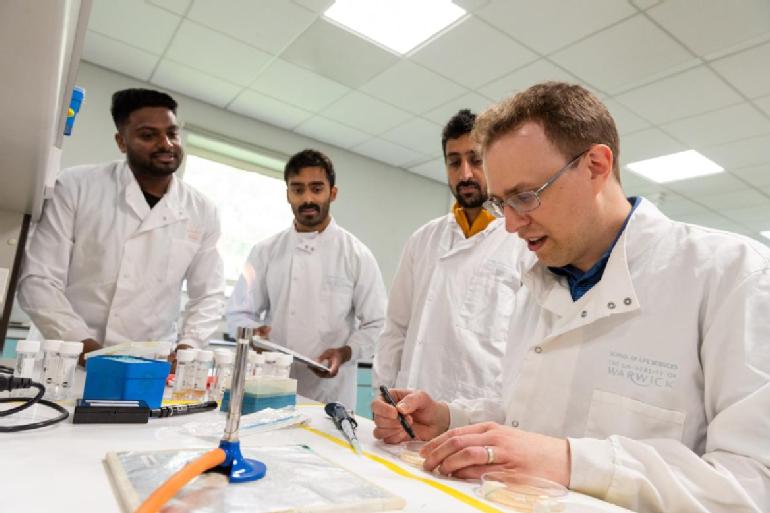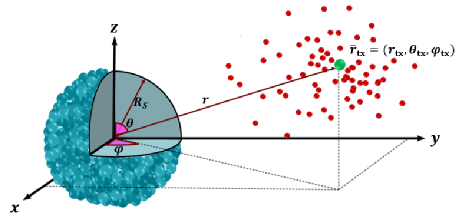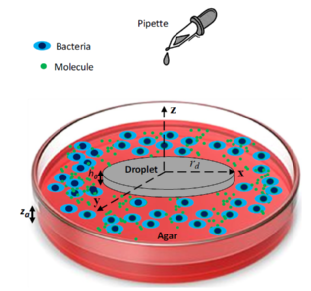Molecular Communications
SIMBA: Signal Propagation and Information in Microscale Biological Applications
Funding Body: EPSRC
PI: Dr Adam Noel
The SIMBA project (Signal Propagation and Information in Microscale Biological Applications) seeks to address the gap between the contributions of molecular communications research and applications in relevant disciplines. It is establishing a communications engineering hierarchy for the characterisation and control of cellular behaviour and decision-making.
In particular, the project will facilitate the application of fundamental concepts in signal propagation and communication theory to understand the uncertainty and diversity of responses in living microscopic systems. This understanding will inspire new ways for us to "listen" and "talk" to living cells, thereby supporting new research including the development of health diagnostic tools and facilitating drug discovery.
The project's implementation includes a combination of analytical, simulation, and experimental approaches. A new mathematical framework that divides communication functionality into layers will provide the foundation for all other tasks. Derived results will describe how variations in a cell's behaviour are influenced by the physical imperfections of generating and receiving noisy signals. The framework will be applied to interdisciplinary case studies of bacteria signalling and organ-on-a-chip systems. The bacteria case study will model the emergence of antimicrobial resistance in an environment with different mutants of the S. coelicolor bacterium. The organ-on-a-chip case study will model metabolic regulation between liver and pancreatic cells, as observed in an experimental microfluidic platform. Predictions derived by applying the proposed framework will be tested against simulations and experimental results. The case studies will demonstrate the flexibility of the proposed framework and lead to further engagement within academia and with industry.




Dates: May 2021 through October 2023
Publications:
- Bi, A. Almpanis, A. Noel, Y. Deng, and R. Schober, A Survey of Molecular Communication in Cell Biology: Establishing a New Hierarchy for Interdisciplinary Applications, IEEE Communications Surveys & Tutorials, vol. 23, no. 3, pp. 1494-1545, Third Quarter 2021.
- Arjmandi, M. Zoofaghari, M. Rezaei, K. Kanebratt, L. Vilen, D. Janzen, P. Gennemark, and A. Noel, Diffusive Molecular Communication with a Spheroidal Receiver for Organ-on-Chip Systems, to be presented at IEEE ICC 2023, Jun. 2023.
People Involved:
- Dr Hamidreza Arjmandi (Assistant Professor - Research Focussed)
- Dr Ibrahim Isik (visiting Research Fellow)
- Mitra Rezaei (PhD student)
